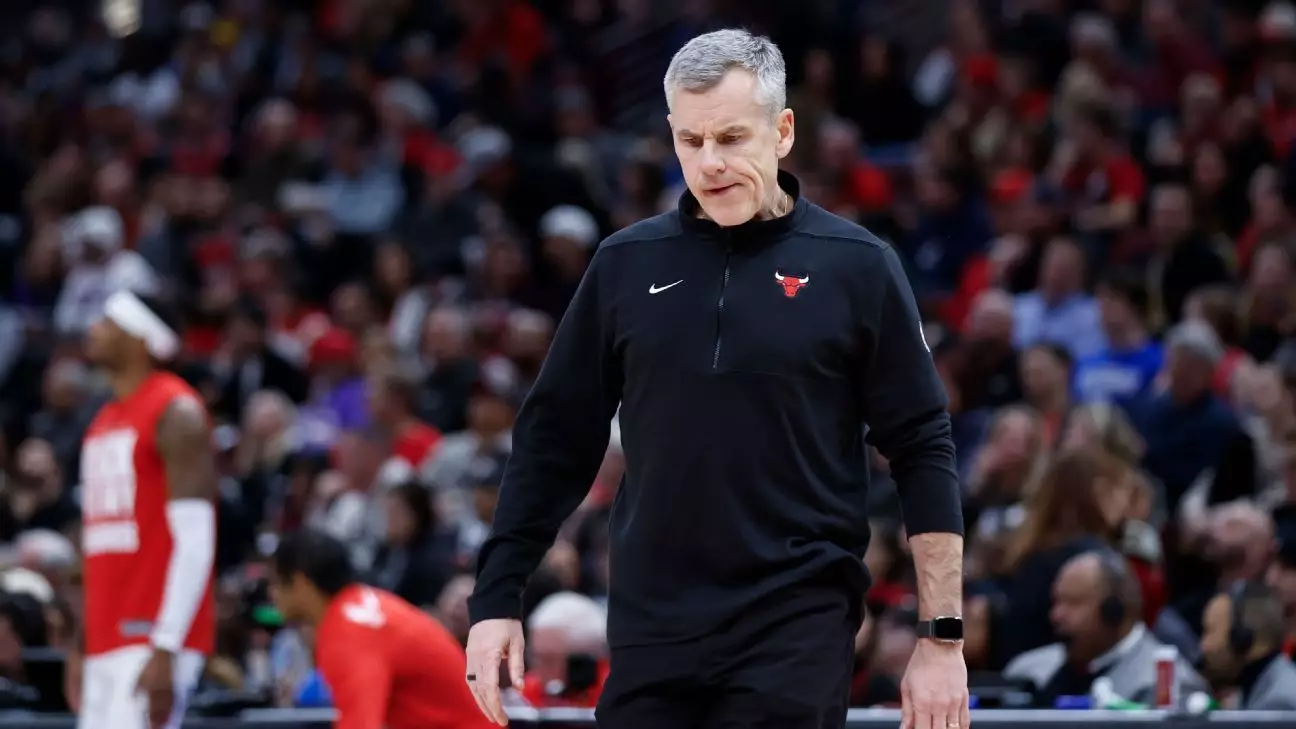As the NBA season progresses, the Chicago Bulls find themselves at a crucial juncture. Coach Billy Donovan recently mentioned that discussions about the Bulls’ first-round draft pick have not been a focal point in his conversations with the front office as the trade deadline approaches. His remarks come on the heels of a solid performance that has seen the team win four out of its last five games, bringing their record to 17-19. While victory is always a positive, it also highlights an underlying tension within the franchise regarding its future trajectory.
The current situation for the Bulls is further complicated by the fact that they owe their 2025 first-round draft pick to the San Antonio Spurs as part of the 2021 DeMar DeRozan trade; however, this pick is protected if it falls within the top 10. This layer of complexity deepens the quandary the Bulls must navigate. The front office’s decisions about trades and player acquisitions must consider not only immediate needs but also long-term aspirations and the potential ramifications for the draft capital that could aid in rebuilding or retooling the roster.
Donovan’s comments about focusing on the “integrity of competition” suggest a commitment to present performance rather than an explicit embrace of rebuilding strategies. Nevertheless, his acknowledgment of the team’s position in the NBA hierarchy and the desire to avoid stagnation serves as a reminder that mediocrity is not a sustainable strategy for long-term success.
The question remains: how do the Bulls extract themselves from a cycle of mediocrity? Donovan expressed the urgency of identifying players who embody competitiveness and can drive the team forward. This self-awareness is critical; the Bulls need to pivot toward what makes them competitive while determining which current players align with that vision. A notable absence from the lineup is Ayo Dosunmu, who has been sidelined for six consecutive games due to a calf strain. The young guard, who is averaging 12.6 points and 4.8 assists in his fourth season, represents a potential core piece for the future.
Without Dosunmu, the Bulls’ need for reliability and team cohesion becomes even pressing. Donovan’s cautious approach to Dosunmu’s rehabilitation reflects a broader strategy: risk management. Injuries can derail future plans, and building a trustworthy, resilient roster will be essential if the franchise intends to rise above its current standing.
As they advance toward the trade deadline, the Bulls must clarify their intentions—are they committed to retooling, or is a more significant overhaul on the horizon? Coach Donovan’s commitment to competitiveness, alongside a recognition of their current predicament, points to a delicate balancing act. Decisions made in the coming weeks could delineate the path for the Chicago Bulls, either solidifying their roster for immediate gains or setting the groundwork for a more sustainable model that captures the imagination of the fan base. Their next steps will reveal not just their commitment to the present but their vision for the future.


Leave a Reply